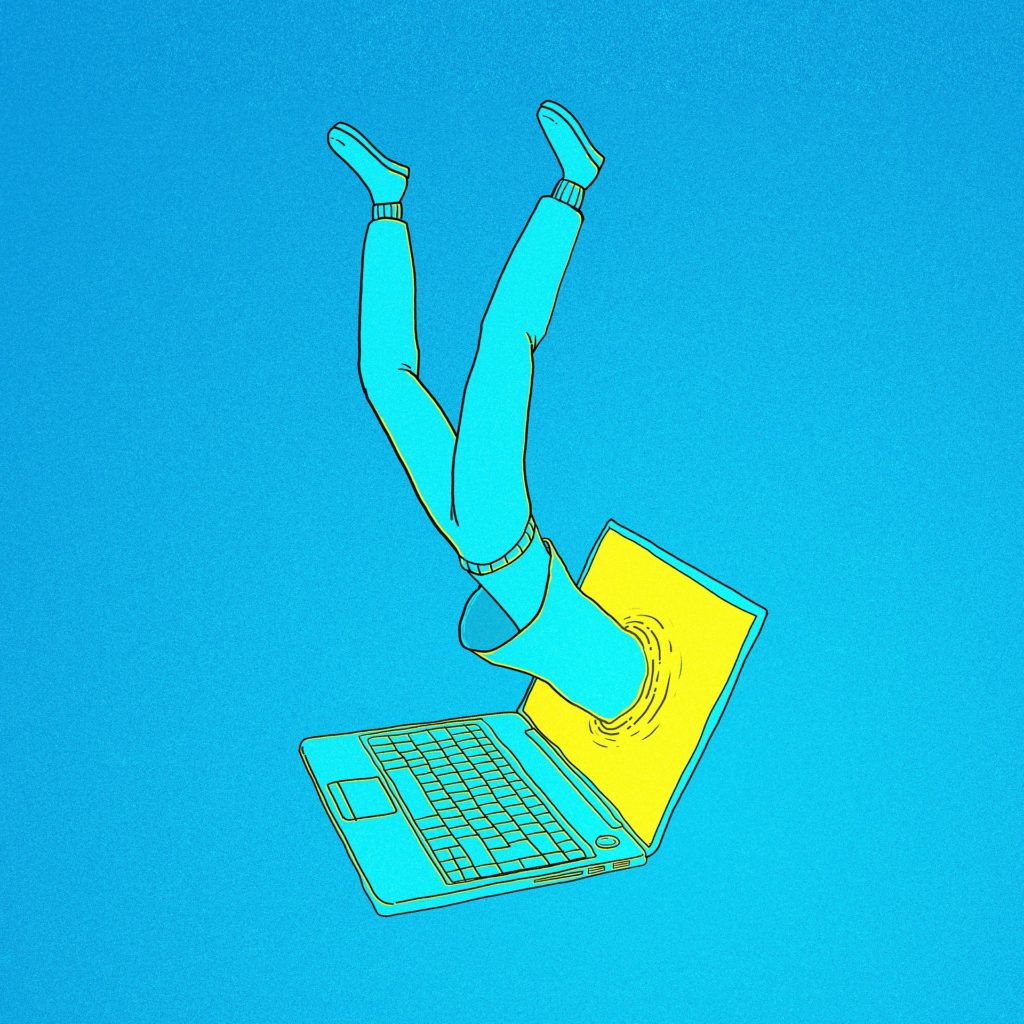
By Yvonne Milosevic
If you’re one of the millions of people fighting a constant battle against digital distractions, Stanford MBA and former GSB lecturer Nir Eyal wants you to know that all hope is not lost. In his new book Indistractable: How to Control Your Attention and Choose Your Life, Eyal offers easy-to-implement tips to help us stay focused at home and work.
“Distraction is always an unhealthy escape from reality,” Eyal explains. “I take issue with the current narrative that technology is hijacking your brain and that it’s addictive. It promotes learned helplessness: We stop trying to change something because we think there’s nothing we can do.”
Instead of blaming technology or our devices, he says we need to deal with the root causes of our distractions, whether it’s boredom, anxiety, burnout, or plain ol’ loneliness. “By identifying an uncomfortable internal trigger…and exploring the sensation with curiosity, we can more easily disarm it,” Eyal notes.
Distractions lurk all around us
The author also discusses something he calls “liminal moments.” These are the transitions happening throughout the day when we’re changing tasks. For example, when you check out what’s trending in TikTok while waiting for an elevator. Eyal has no beef with that, per se. A problem arises when you’re still glued to your phone a half-hour later when you’re back at your desk. Now, he says, “You’ve become distracted as opposed to working on what you wanted or needed to. That’s where these liminal moments are dangerous.”
There’s nothing wrong with scrolling Instagram, playing a video game, or watching Netflix, if that’s what you intended to do. Taking a break can be good for us. It’s when we do these things unintentionally that we get into trouble.
When you’re ready to get serious about reducing some of the distractions that plague your daily life, Square one starts with—you guessed it—your phone.
The 4 R’s of taming your phone
According to Eyal’s book, the first step toward becoming indistractable is to implement the following strategies.
- REMOVE unused apps from your phone.
- REARRANGE distracting apps. Move apps that trigger mindless checking behavior (sorry TikTok) off your home screen. Or better yet…
- RELOCATE them to your desktop instead of your phone.
- RECLAIM your mental bandwidth by eliminating app notifications.
Notifications are evil
Ample studies support Eyal’s contention that notifications distract us, even if we don’t check them out right away. Evidently, mere awareness of the alert can hurt our performance on an attention-demanding task, researchers from Florida State University found. You’re wondering who messaged you, or what exciting thing awaits but one click away. Just having your phone nearby can distract you and interfere with your work performance.

Eyal has a simple solution for anyone struggling to avoid the siren’s call of app notifications, especially those from group chats. Instead of responding as messages come through, schedule a block of time to catch up on the conversation. The same approach works for Facebook, Instagram, Google News, or any other app that diverts your attention. Stop being a hostage to notifications. From now on, you control the moments when you seek out information/diversion.
Schedules for the win
Eyal also admits he’s a huge fan of schedules. So much so, he credits weekly scheduling sessions with his wife to divide domestic responsibilities for saving his marriage. If productivity is your goal, the timeboxing method can help you reach it. As this article in Harvard Business Review explains, constant interruptions torpedo both our happiness and productivity. With timeboxing, you decide what to do and when, and then block out all distractions during that period. As a matter of fact, timeboxing ranked number 1 out of the 100 most useful productivity tips. Users swear by it because they find the control and demonstrable accomplishments addictive.
“We perform better under constraints. Schedules give us a framework, while nothingness torments us with the tyranny of choice,” Eyal asserts. “An unscheduled day isn’t freedom. Rather, it’s a recipe for regret. When we don’t plan time in our day to do what matters, our life quickly falls out of balance.”


